Francisca Griffin: Taking to the Road
With songs to call on stretching back to her days with Look Blue Go Purple as well as two solo albums, Francisca Griffin is about to tour in the North Island for the first time in decades. The most recent of her solos records is the lovely and affecting the spaces between. She’ll be playing Auckland and some out-of-the-way-places with her band, The Bus Shelter Boys. She spoke to Richard Langston.
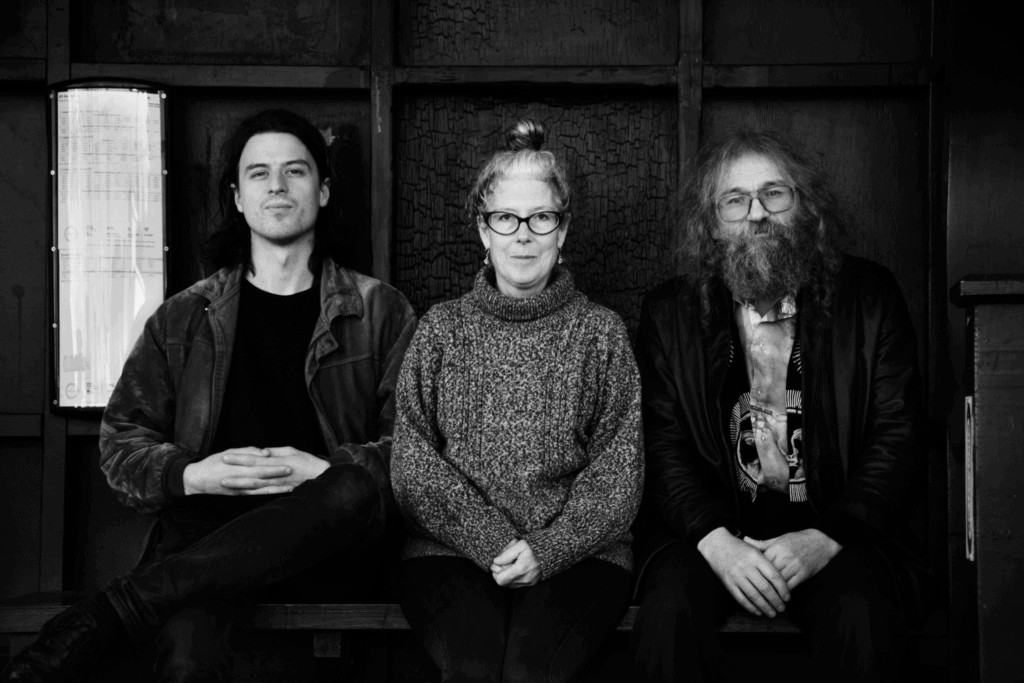
Your album the spaces between is a record of such a particular tone and mood, I’m wondering how you approach those songs live?
Ah, that’s a good question. That was a solo record with a lot of help from amazing people, Mick Elborado for example, he plays keyboards on ‘Rising Tide’ and now he’s in the band playing bass. I’ve got Gabriel on drums and the songs have morphed a little bit as I think songs should. The same basic bones are there with the ones I play with the band.
We went into practice and I just told Gabriel and Mick that they should play, well we just started, and they played what they wanted. There’s only one song where I directed Gabriel and sometimes I tweak a little bit of what Mick’s done – can you hold off on this bit, and that bit’s really great. I really like what they’ve brought to it and I enjoy listening to other people’s interpretations within the tunes.
We’ve got three new songs and we’re going to bring them on tour. We also play some of my older music like ‘Eyes Are the Door’ which is on the Look Blue Go Purple compilation, the first song I ever wrote.
What I particularly enjoy about Spaces is how it evokes where you live (Port Chalmers) and people who are obviously close to you…
Yep, it’s songs written over 15 years…maybe a bit more actually. I started writing ‘Stardust’
in 1995 but it didn’t morph into what it is on the record now until 2012, it just happened one day when I was practising , ah, those words fit this.
Were you surprised when you were writing Spaces how powerfully some of those people came back to you, for instance the song about Martyn Bull (who she married and who died aged just 22 in 1983…and who famously drummed on Chills song ‘Pink Frost’)…
That song, ‘Martyn’, I wrote when I was playing with Sandra Bell and Dianne Civil and Emma Milburn…we were this very short-lived band called Formentations and I wrote it just after we had stopped playing. That song just arrived like so many of my songs do. I do have to work at some of them of course, you do end up working on all of them to some extent, but that song was just there.
I have this new view of death, it’s not a popular one, which is cool…it doesn’t bother me. Not long after Martyn died I was as you would imagine bereft. One night I lay down on his side of the bed and I was fucking miserable…and as I was drifitng off to sleep…and this is no word of a lie…this happened… I felt a weight on the bed come down beside me and then give a really amazing hug. When I woke up it wasn’t there. I think it was Martyn. He was coming to give me a hug to say that he was alright, he was doing okay.
What year did you write that song?
1996.
Ok that’s sometime after …
Oh yeah, totally. The time between I spent in LBGP and being a mum and being in a relationship where I was not at all confident to go and play and my partner was not in the least bit supportive of that, and so I lost confidence pretty much completely. A pretty difficult few years but I got a few songs out of it (laughs).
One of the other songs that’s very affecting is ‘Ghost Boy’…I heard it and got the impression you’d lost someone else…
That was written in 2000, I started writing it on bass and then moved it over to the guitar – it was the patterns as opposed to the notes because of course my bass is left-handed – conventional left-handed and my guitar is left-handed but my strings are all around the other way cos as people know who’ve read any interviews with me I learned to play at peoples’ houses at parties in the ‘80s and they all had right-handed guitars.
My son Oscar was visiting here from London, his Dad brought him over when he was 12. The visit had some really really really good aspects to it of course, I was seeing my son for the first time in two years and he was seeing us for the first time in two years and getting to know his little brothers a little better. At some stage we had a gigantic fight, and he couldn’t vocalise why he was so angry and I wrote him a really long letter…actually I never sent it…I gave it to him when he was older…just to put it out there I think we’ve resolved those things and have mended those hurts.
That song, every time I played it for a long time, and still sometimes now, I start crying, and lots of people cry when they hear it. Ro Rushton Green who’s just joined our band from the band Sewage, Ro plays violin and we started practising it last week so we’re going to do it on tour.
Ther version you have recorded on the album…Alastair Galbraith’s playing…the way he makes his guitar burble…moan…mourn…and lament…it’s incredible…
He does an astounding job. When we started practicing last week Ro cried while she was playing. It’s not just a song about Oscar… it’s a song about loss. The last two verses are about realising that you are still connected although you are not in the same room.
When we play ‘Ghost Boy’ it will be just me and Ro. I’ve played a few times solo when I’ve asked Alastair to come and play as well which has been really amazing. There’s 3 songs on that record that Alistair’s on that I’ve roped him into playing live a few times which is awesome.
‘Martyn’ was recorded with Gabriel (her son) and me playing guitar and Ro playing baritone sax, on tour Ro will play an alto sax cos a baritone is a monster to cart around and Mick’s bass is pretty much the only thing new on that song when we play live.
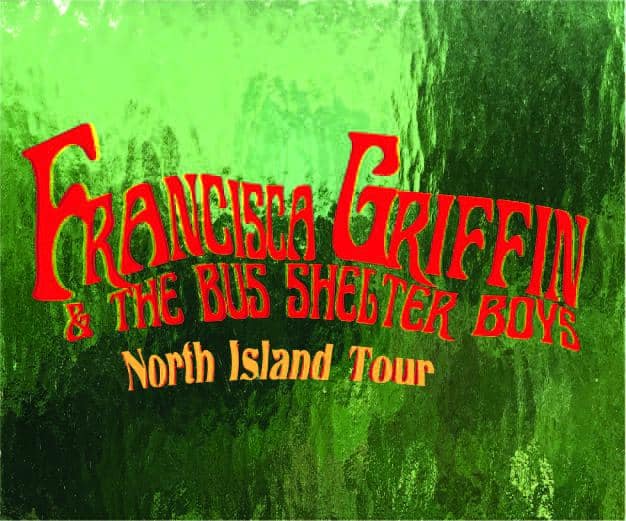
Which reminds of the fact you’ve got a knack..a gift…an ability to gather a community of musicians around you when you want to make music…
It’s just so heartening. Let’s talk a little about Songs from the Sky (her first solo album released in 1998). That came about because I played at The Empire one night a solo thing with Alastair Galbraith and Peter Jefferies and for some reason I ended up playing last when it didn’t even occur to me…I’m a bit naive sometimes…(laughs)…following Peter and Alastair was a big ask and to hold people’s attention.
When I was finished playing someone said to me , that took guts to play after them and I just went, what? David Kilgour came up to and he said, they’re great songs… When are you going to record them? I just looked at him and thought, here’s this guy that I absolutely admire, I’ve loved his guitaring forever, so when he said this, I thought…ah huh (laughs).
I got funding after Roy Colbert, bless him, and David wrote letters of recommendation. I asked David if he would help on it and he was amazing, he and Stephen Kilroy, they put up with me being a mother of small children and my band Heath Te Au and Tenzin Mullin they were pretty amazing too.
I got the CD out recently and looked at what we all did and OMG David plays a lot on that record, and I had a convo with him recently and said once again how appreciative I was of his help through that entire process and he said, oh, it was fun, I really enjoyed it. I said do you remember playing all those basslines and he said, no. He plays a few on that record and some guitar on ‘What Dreams’. We play that one live, that’s a lot of fun.
In our set we also play ‘Lunar Fall’ the Cyclops song and we play ‘Call Me’ from Some from the Sky and ‘Antarctic’ from the Shrew’d compilation in 1993 released in Women’s Suffrage year.
You’ve said in the past that you play by feel, I wonder what about your boys, do they have a similar approach to you?
Alexander’s not in the band but he is on the record. He did music at school. He doesn’t read music but he knows about chords and he knows about transposing and keys which I don’t have a clue about…none whatsoever…Ro and Mick know keys so Ro goes what key’s that in and I say I dunno ask Mick (laughs).
Gabriel also took music at school but he plays by feel and honestly he’s just the most incredible drummer. He’s in a couple of other bands which I dub screamo bands. They play super fast.
There’s quite a gap between your solo albums – something like 17 years – when might you make another?
Next year. We’ve got three songs so far and when I play really intensely I start to write. I can’t just sit down and write – I can do little riffs and stuff – that intense outpouring really happens when I’m playing a lot, either practising or touring. The three new songs are fully band songs and one of them is called ‘Broken Heart’, another song that has made people cry.
But y’know that thing of listening to some music and having your own moment of being so touched I know that is a really important thing for people to have that connection and feel that way.
What local bands are you listening to…and getting excited about?
Na Noise. They are bloody amazing. OMG…Night Lunch. Anything Milly Lovelock touches is amazing, another young woman called Julie Dunn… she’s got a couple of projects called Bathysphere and Fleshbug . I love Tiny Pieces of Eight and Wet Specimen and Negative Nancies.
Gabe said you’ve gotta come and see this band Dick Move. They really like you and they’re fans of yours, and when I met them they were so fanned-out they couldn’t actually talk to me. They’re ok now! Lucy the singer was wearing the Look Blue Go Purple t-shirt on stage last night when I saw them, really cool.
There’s a lot of activity on the experimental side of things – there’s a crashie noise trio of Peter Porteous, Mick Elborado and Robbie Yeats. They’re calling themselves Ghost Bells.
That’s a juggernaut of sometimes not working but sometimes working and working well.
And I have it on good authority from Bruce Blucher that the Alpaca Brothers have just recorded some new songs with Bob Scott.
Are you looking forward to getting on the road…playing Auckland and then some out of the way places….in Palmerston North…Featherston…and Paekakariki…
Absolutely. I haven’t toured – we did three gigs in the South Island in January 2019 for the spaces between- but I haven’t been in the North Island playing with a band and doing that driving around stuff since 1987, the last Look Blue Go Purple tour. We played some unusual places then, we really didn’t want to do the university circuit again, we played lots of different places including Greymouth in this tiny bar I think it was called the Tramway. That was hilarious, the entire town turned out to see us, then took us somewhere for a party. Great. I’m so looking forward to the wonderful places we’re going to play – it’ll be a blast.
The smaller places anyone can come, they’re all ages venues which we love. And St Peter’s in Paekakariki looks like a pleasure to be in. Featherston is a tiny gallery, Miracle Room. That’ll be me and Ro playing quietly.
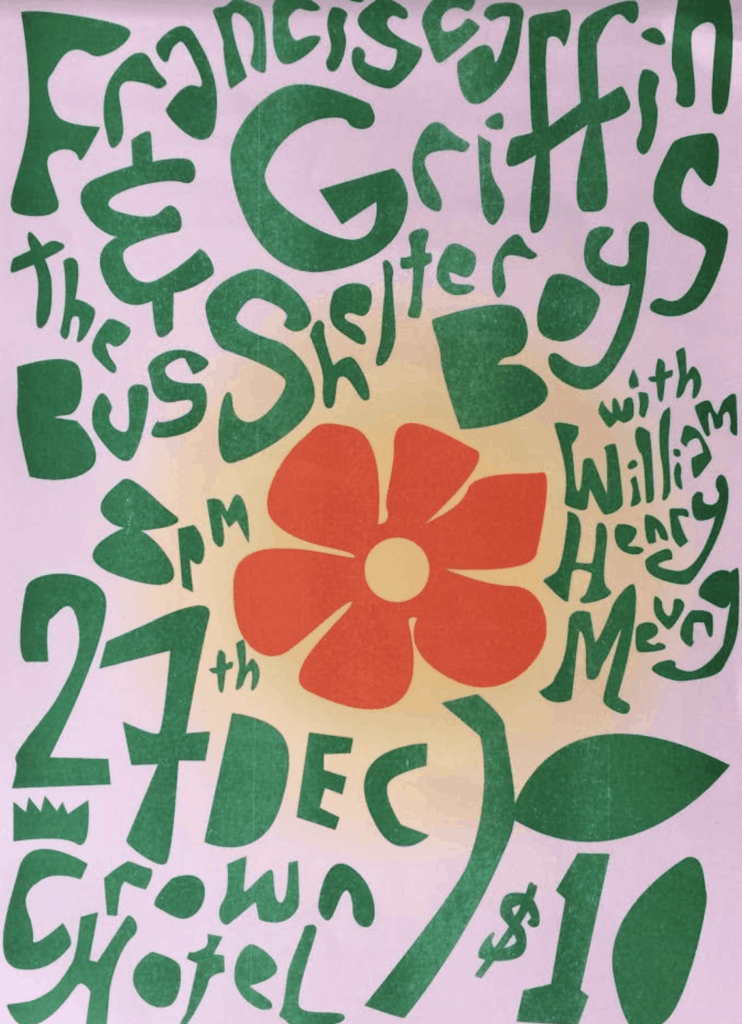

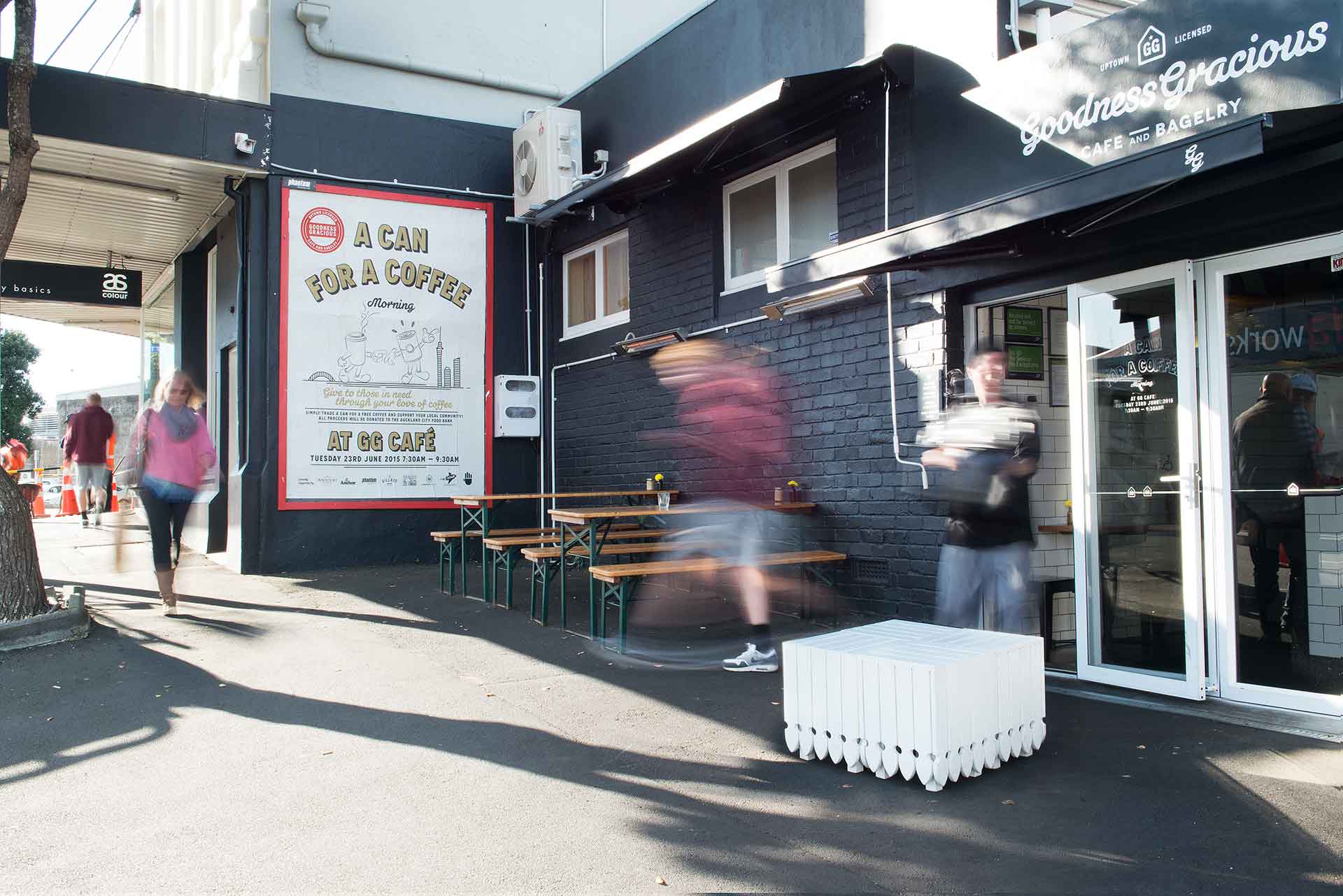
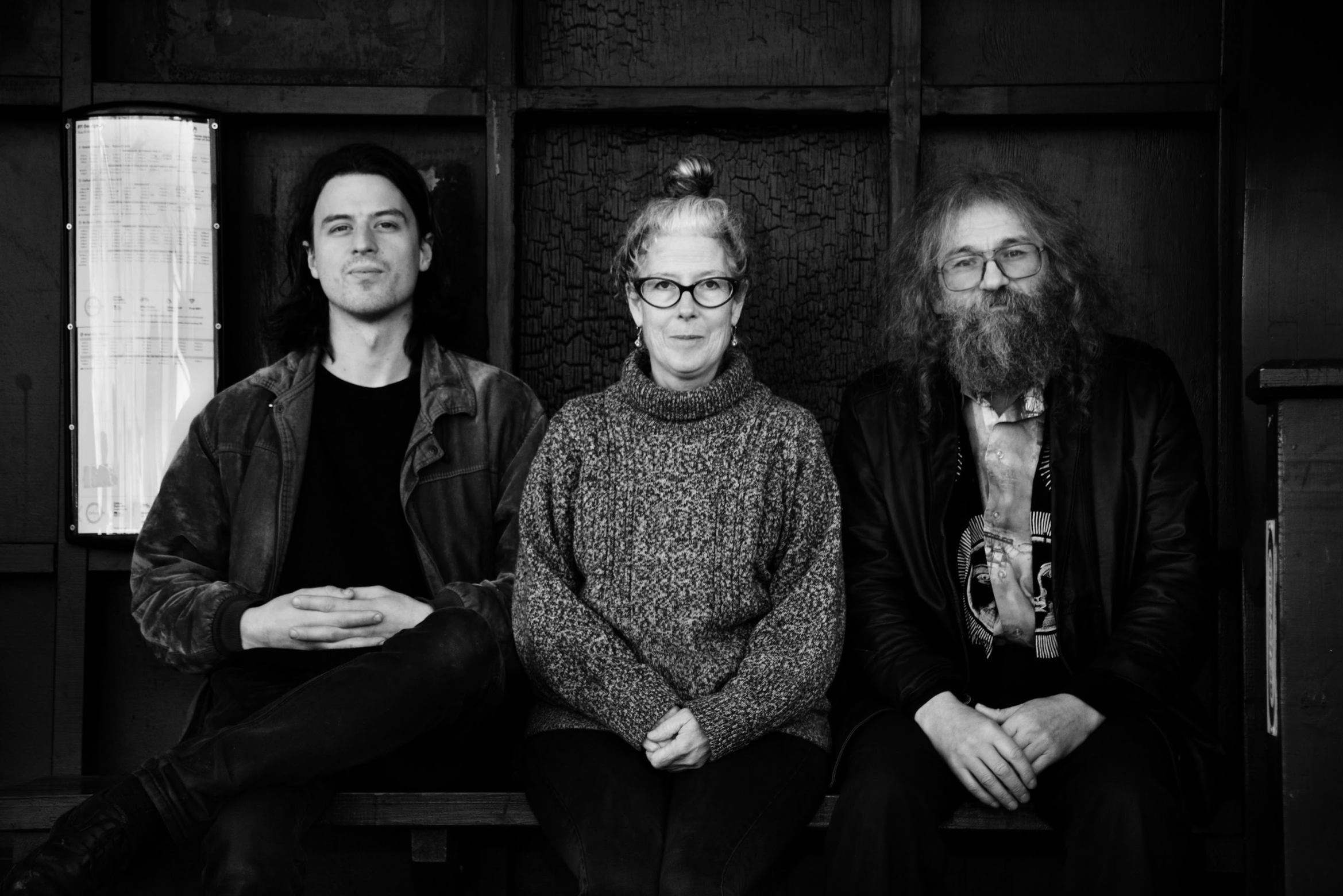
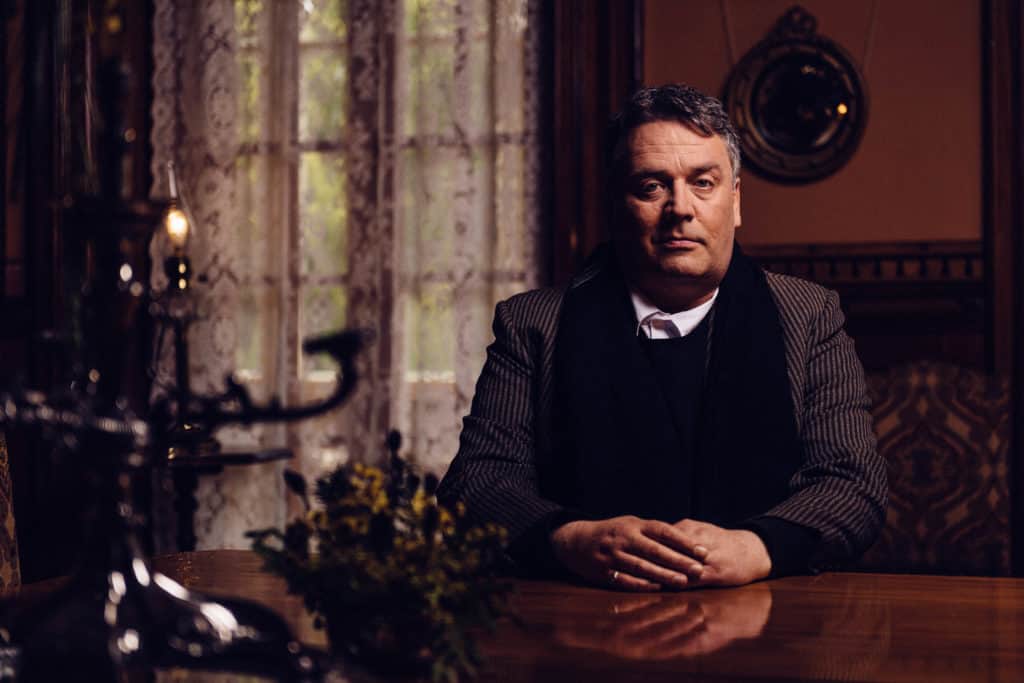
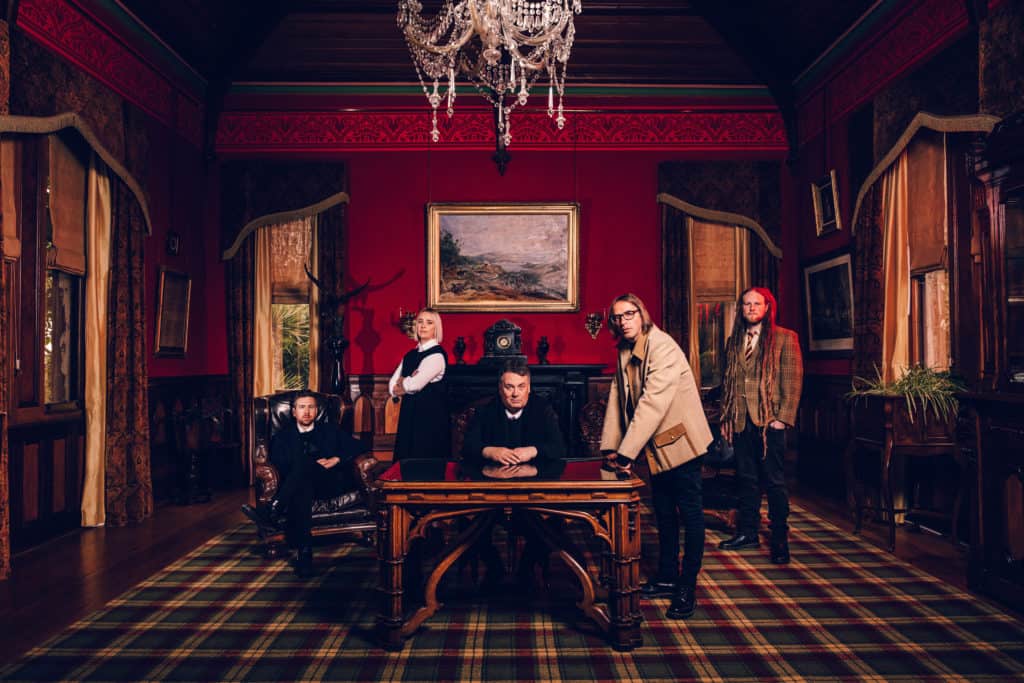
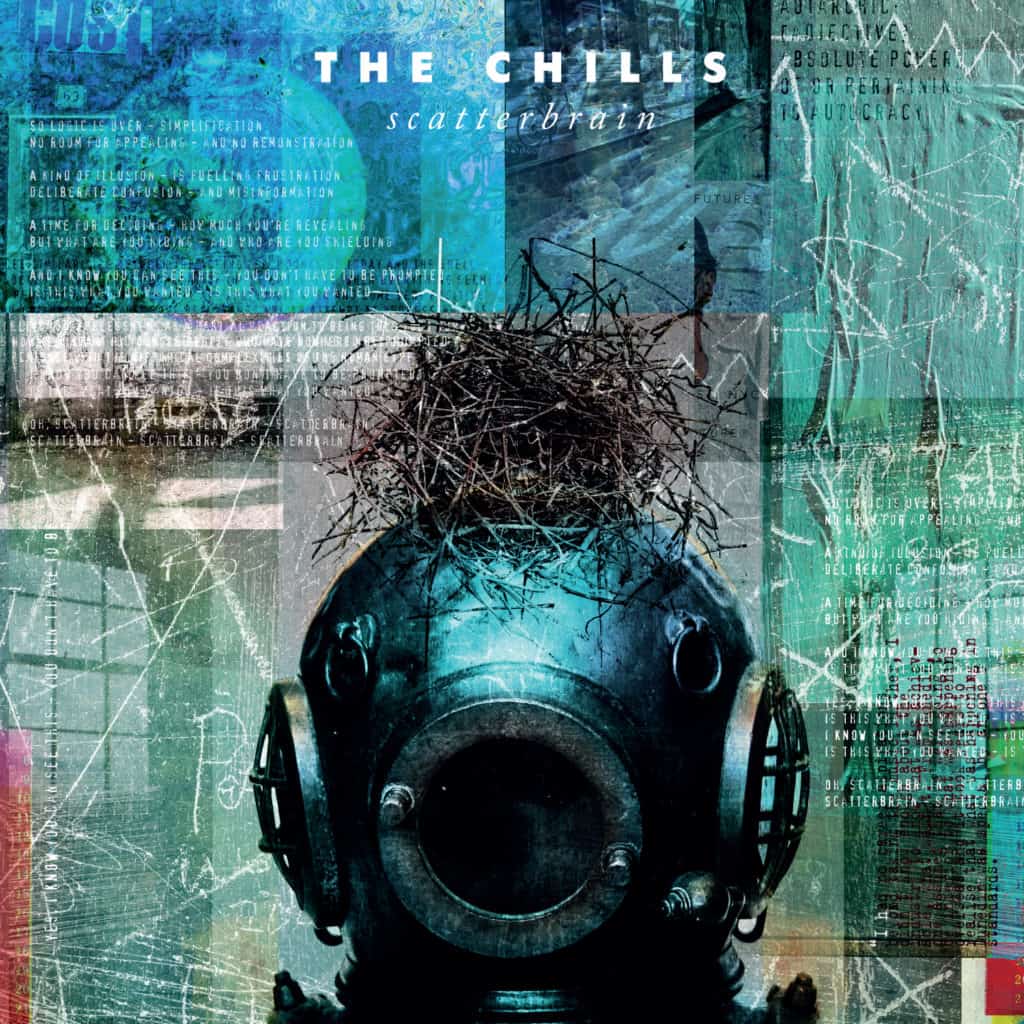
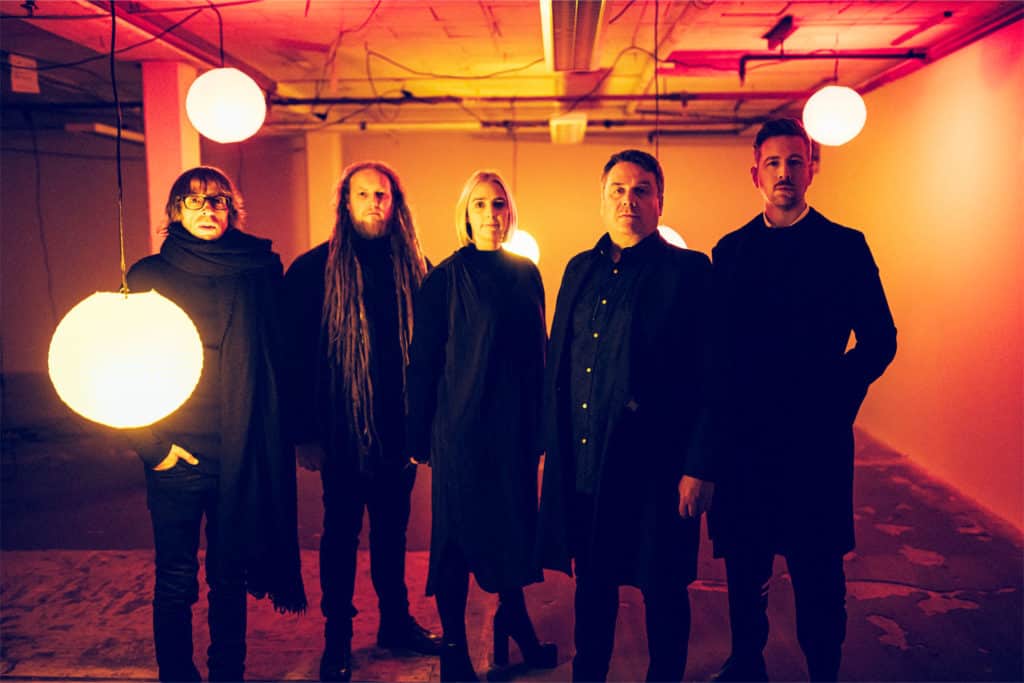
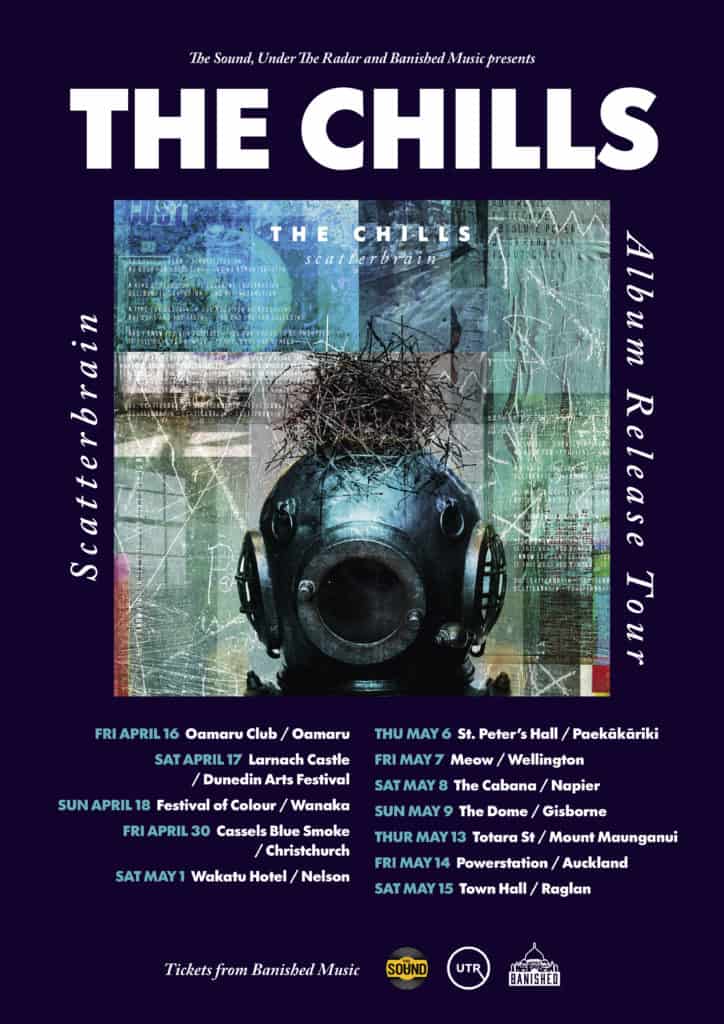
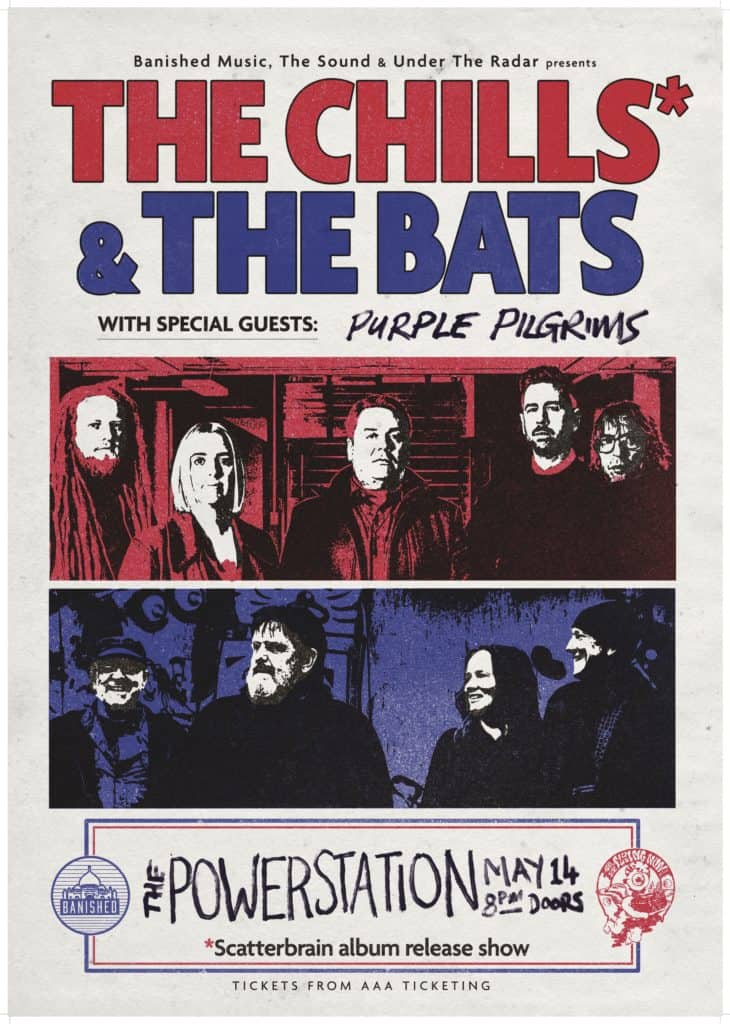
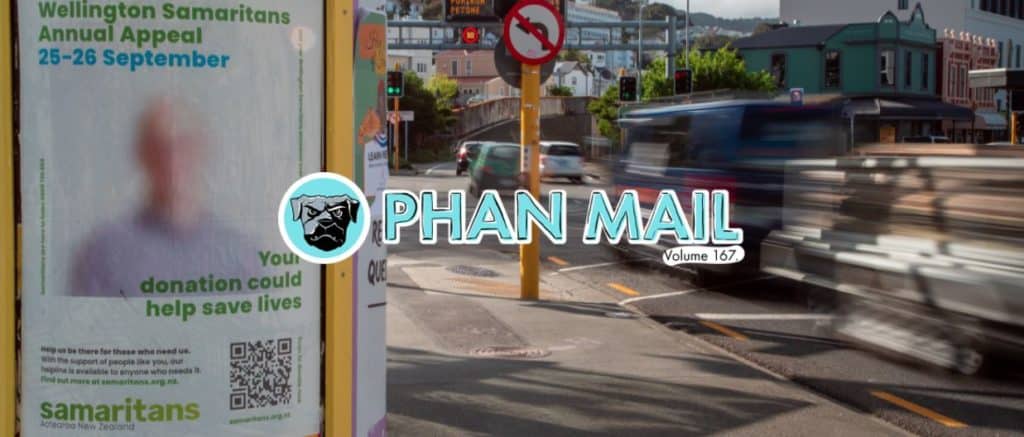
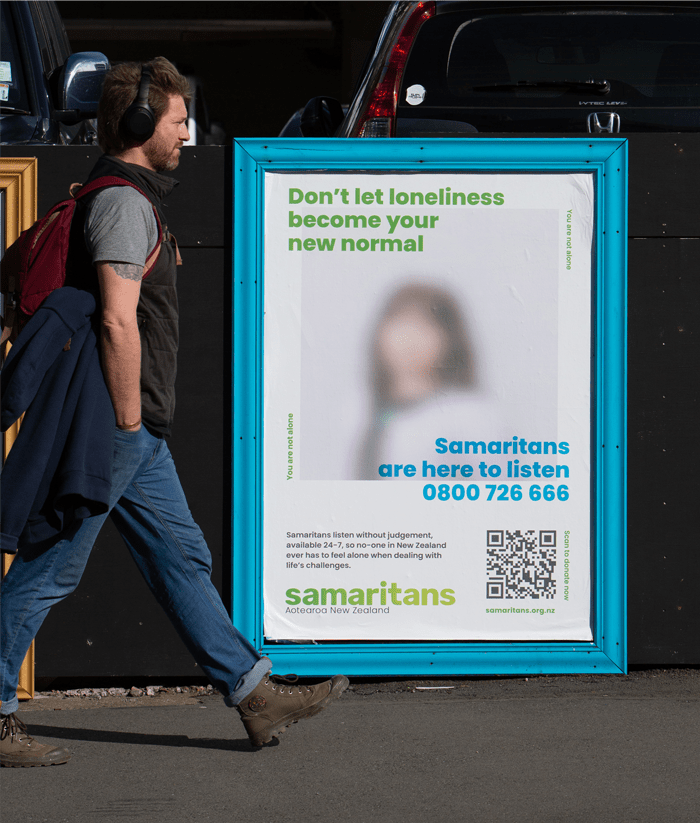
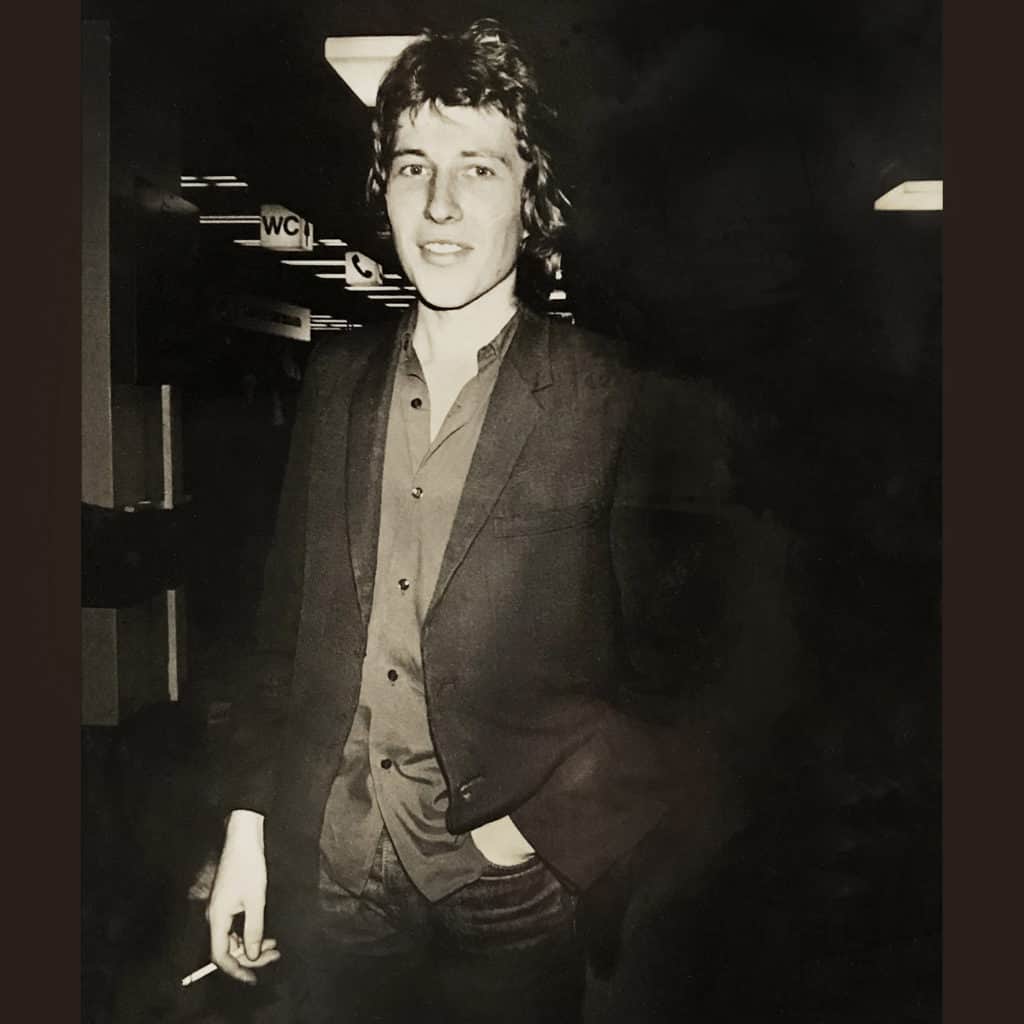
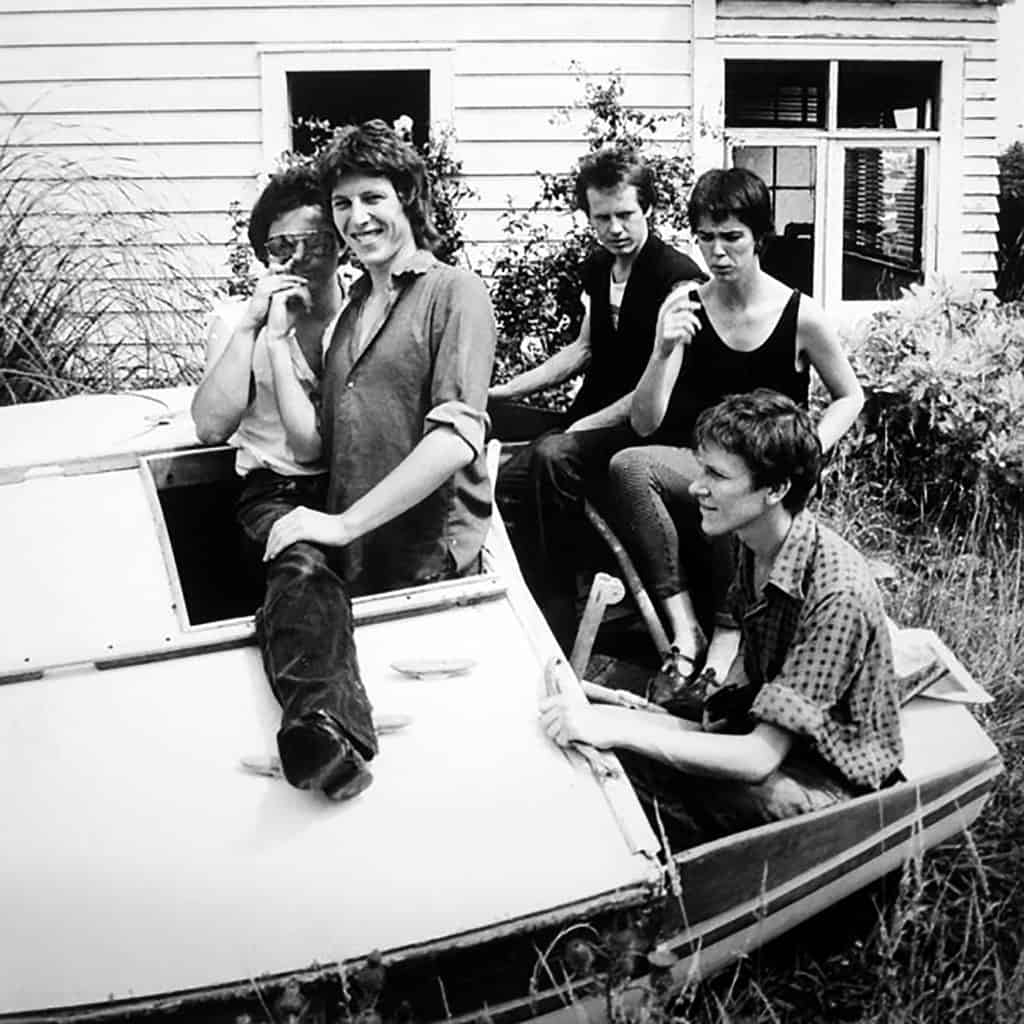
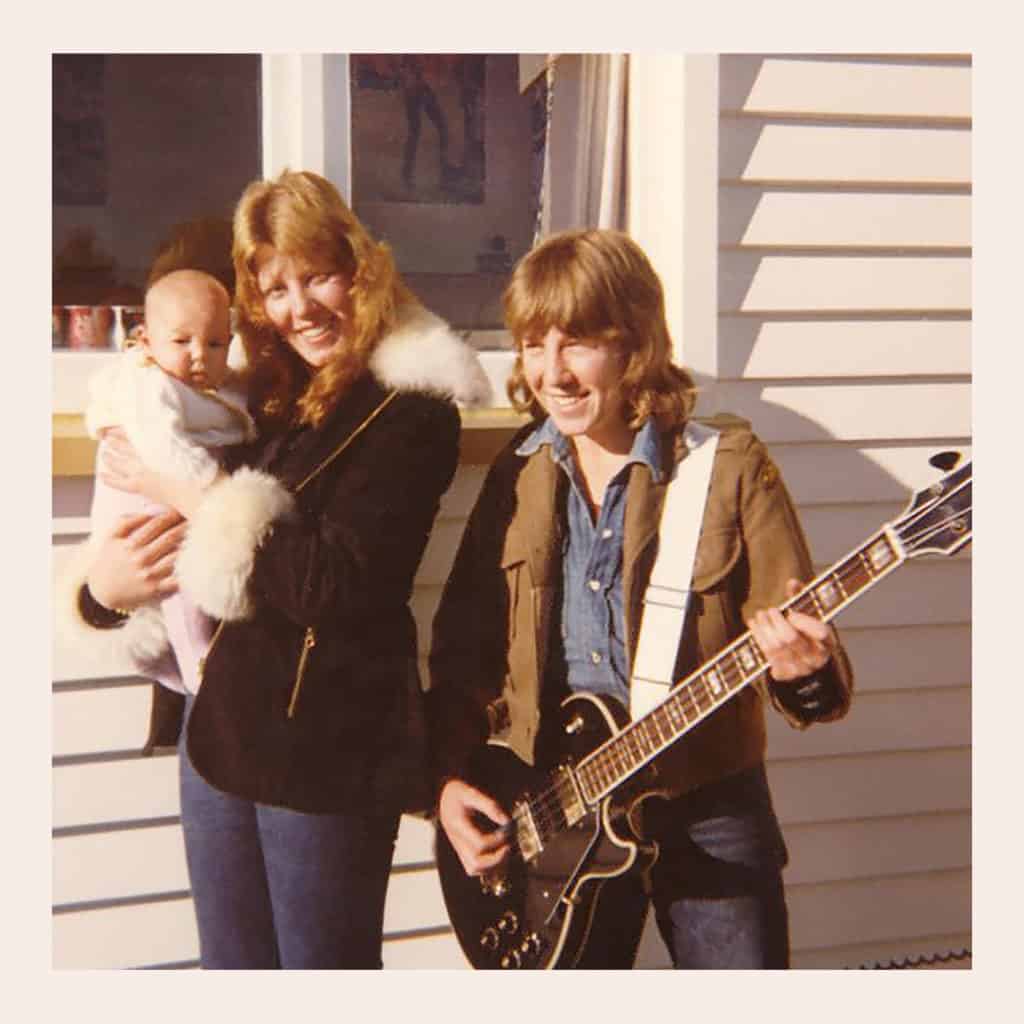
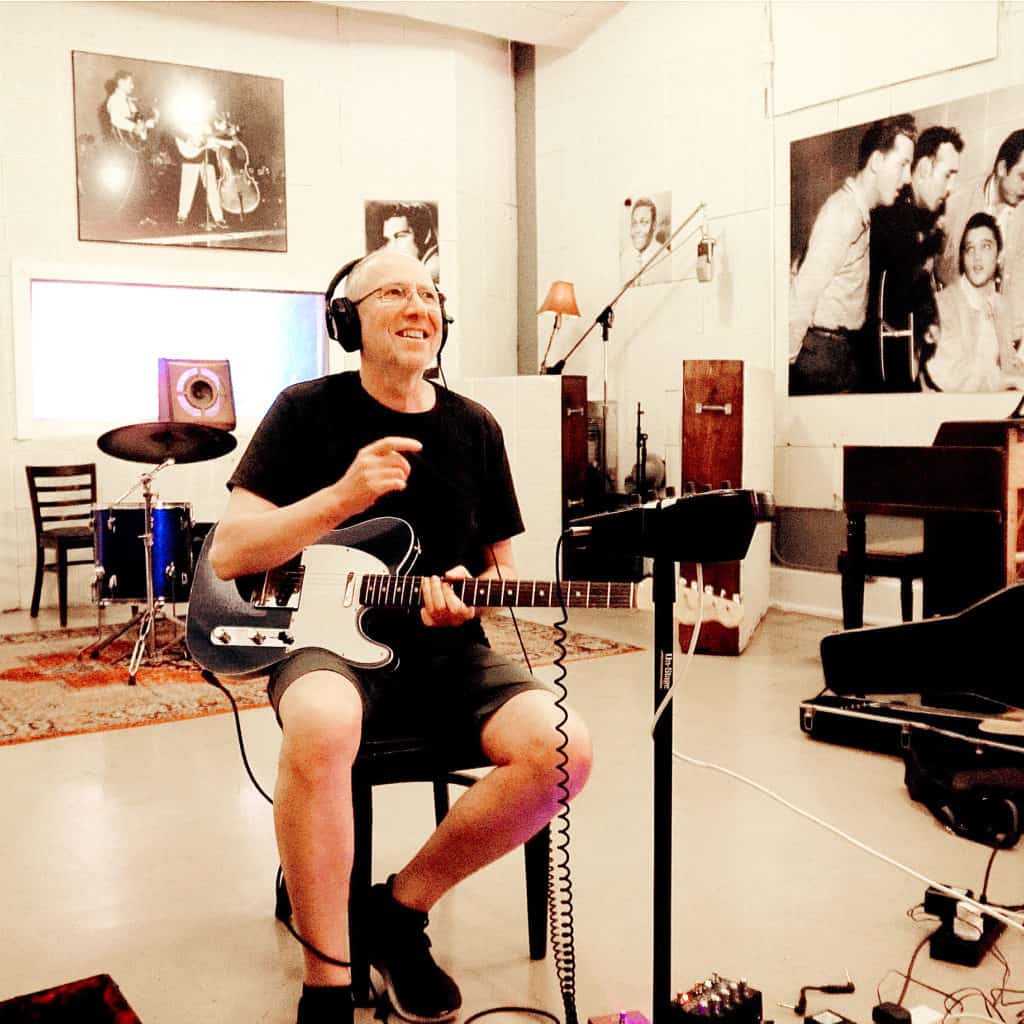
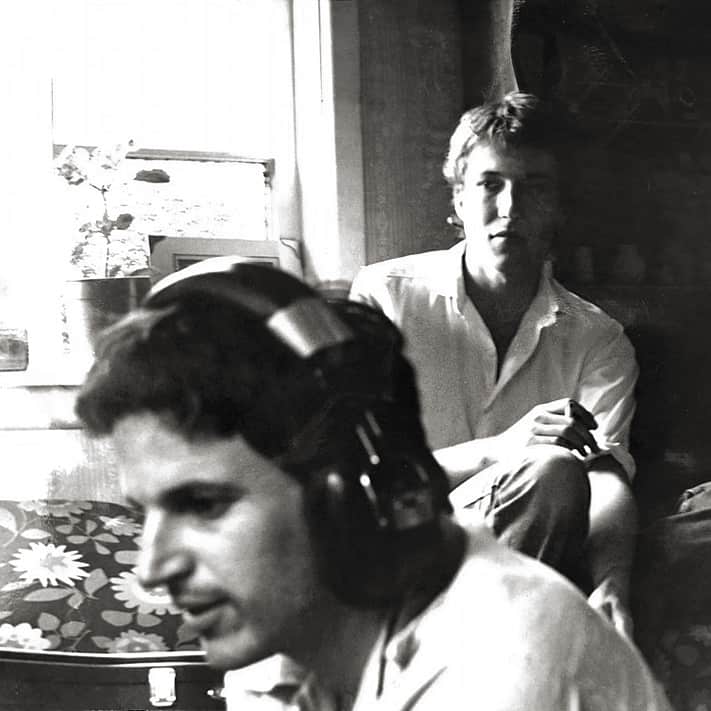
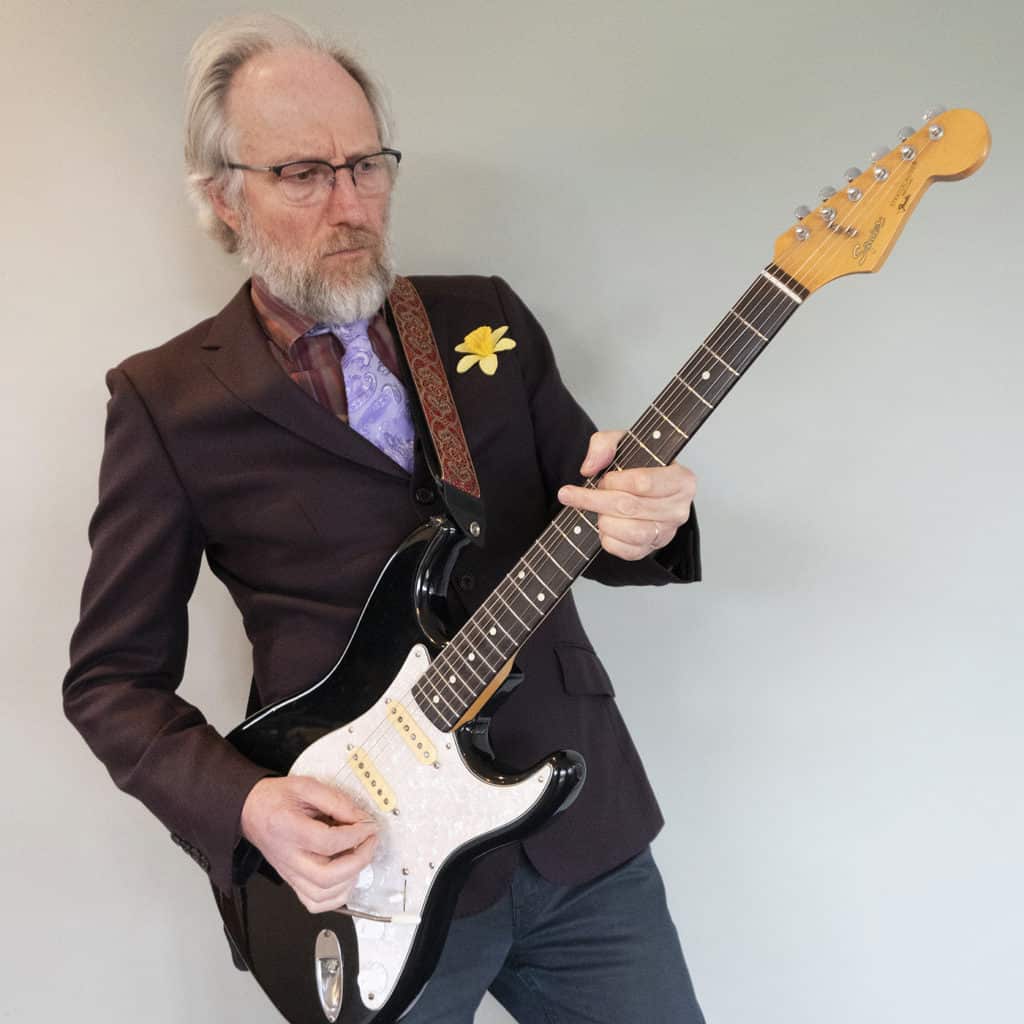
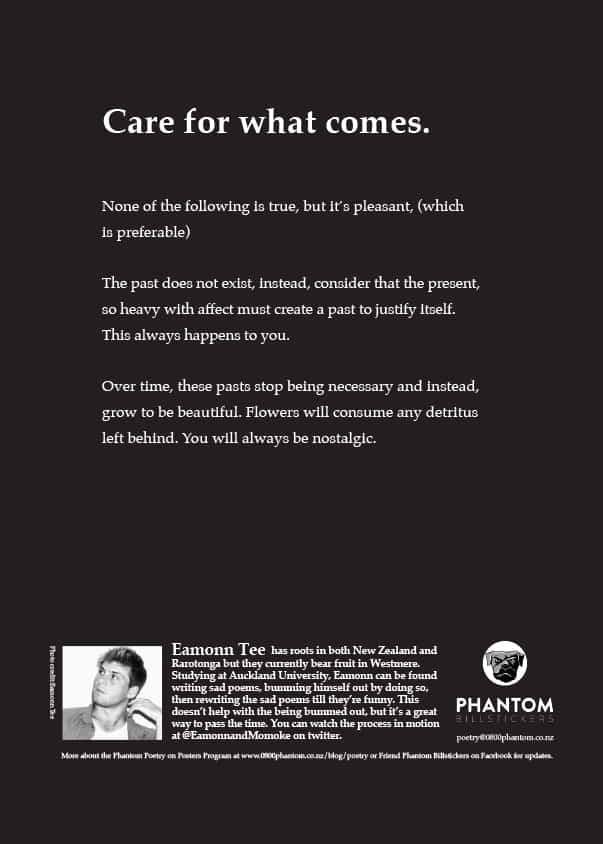
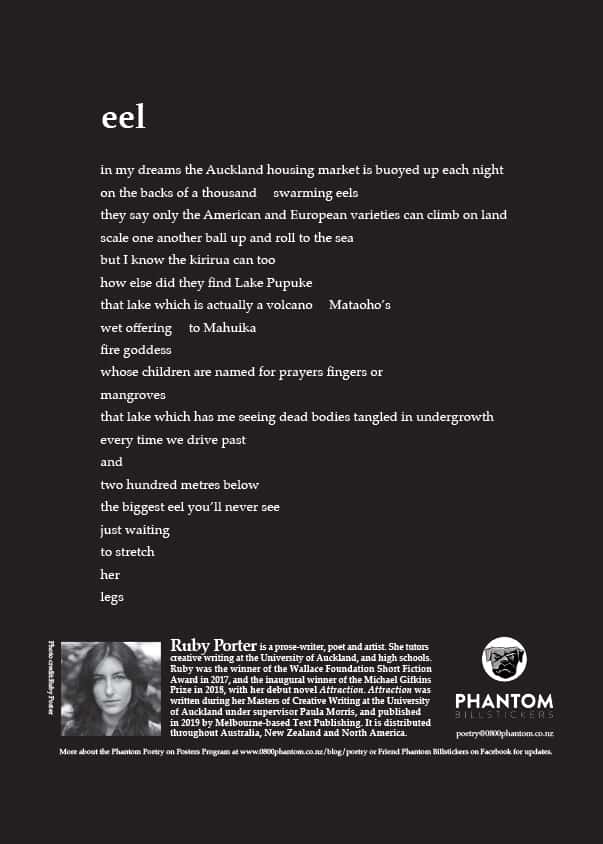
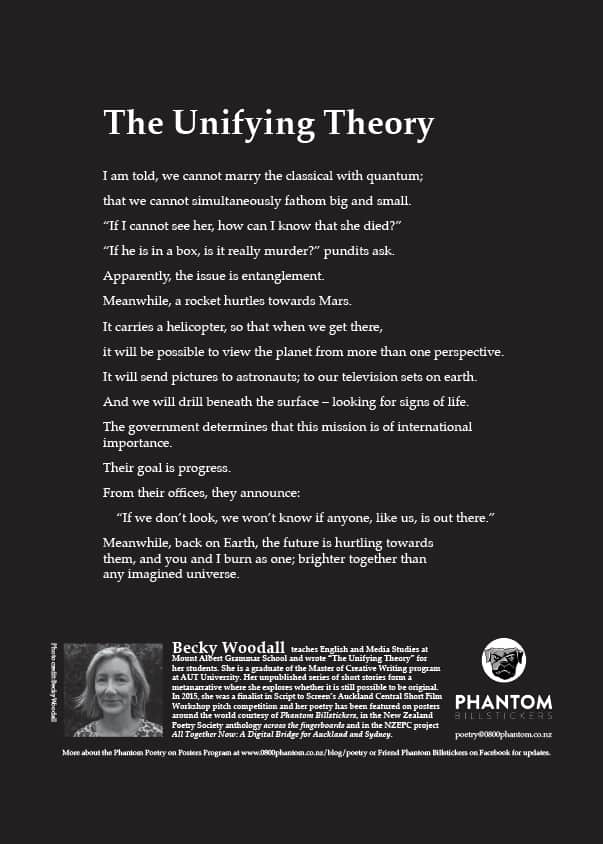
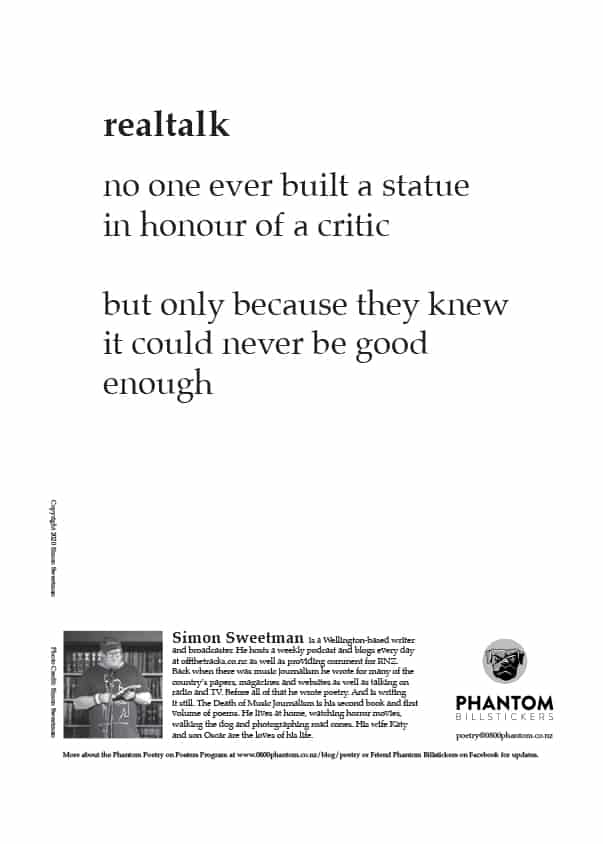
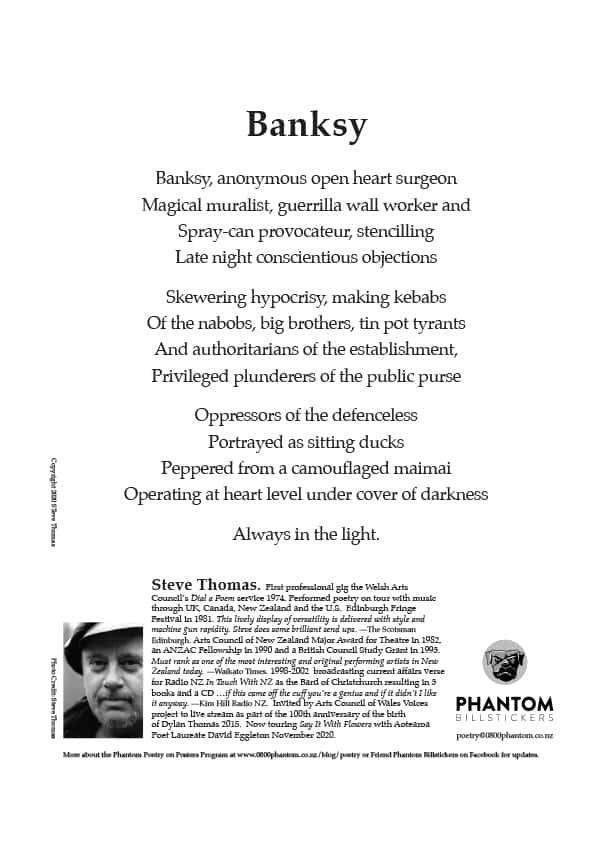
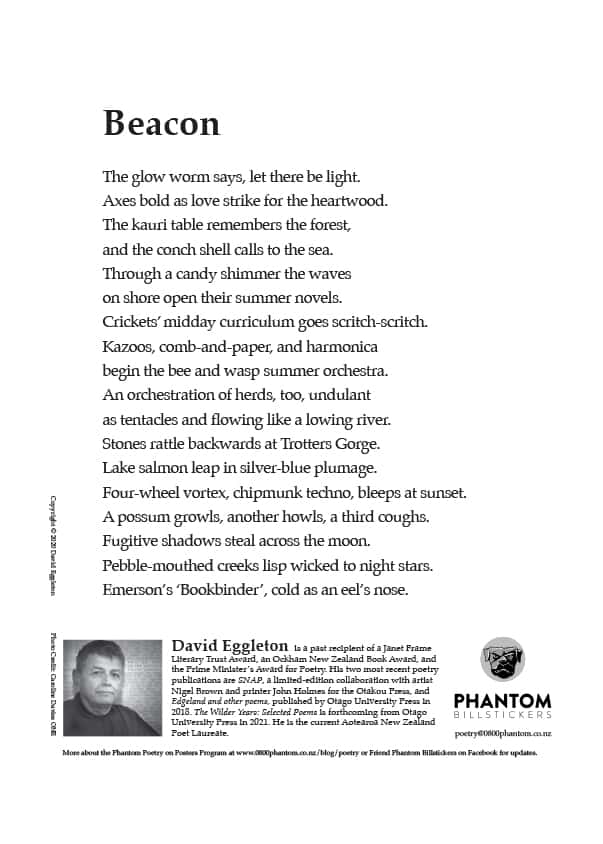
Recent Comments